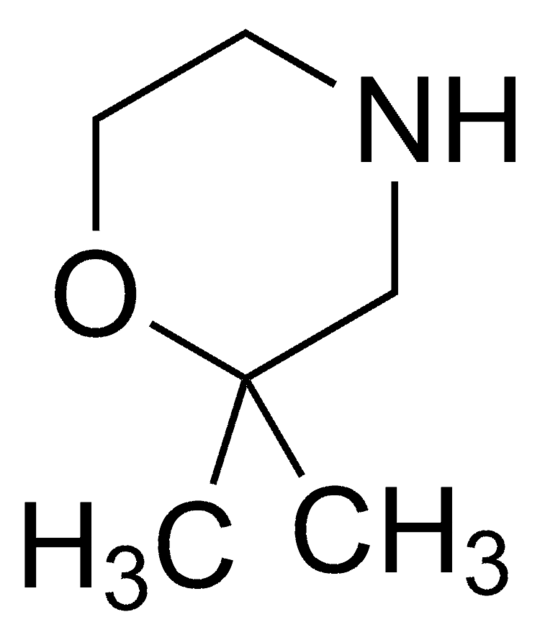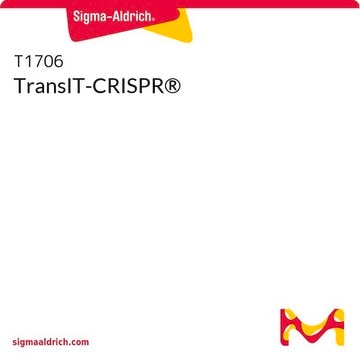CRISPR01
CRISPR Human EMX1 Positive Control
About This Item
Productos recomendados
formulario
liquid
envase
pkg of 2 vials (50μL aliquot for each of the 2 kit components)
concentración
20 ng/μL in TE buffer; DNA (1μg of plasmid DNA)
aplicaciones
CRISPR
Condiciones de envío
dry ice
temp. de almacenamiento
−20°C
Categorías relacionadas
Descripción general
Aplicación
- Creation of gene knockouts in cell lines
- Creation of knock-in cell lines with promoters, fusion tags or reporters integrated into endogenous genes
Características y beneficios
Componentes
Principio
Forma física
Nota de preparación
which may not be suitable for transfection into particular cell types. For best results, we advise maxi-prepping
plasmids using endotoxin-free DNA purification kits prior to transfection.
Otras notas
Información legal
Código de clase de almacenamiento
12 - Non Combustible Liquids
Clase de riesgo para el agua (WGK)
WGK 1
Punto de inflamabilidad (°F)
Not applicable
Punto de inflamabilidad (°C)
Not applicable
Certificados de análisis (COA)
Busque Certificados de análisis (COA) introduciendo el número de lote del producto. Los números de lote se encuentran en la etiqueta del producto después de las palabras «Lot» o «Batch»
¿Ya tiene este producto?
Encuentre la documentación para los productos que ha comprado recientemente en la Biblioteca de documentos.
Los clientes también vieron
Artículos
Validate CRISPR gene editing experiments easily with Sigma-Aldrich® T7E1 mismatch detection kit, ensuring successful editing.
Protocolos
Learn about CRISPR Cas9, what it is and how it works. CRISPR is a new, affordable genome editing tool enabling access to genome editing for all.
Contenido relacionado
Sigma-Aldrich® Advanced Genomics is the leading provider of gene editing and silencing technologies including CRISPR, Cas9, synthetic guide RNA (sgRNA), and Zinc Finger Nuclease (ZFN).
Sigma-Aldrich® Advanced Genomics es el principal proveedor de tecnologías de edición y silenciamiento de genes, entre ellas, CRISPR, Cas9, ARN guía sintético (sgRNA) y nucleasa con dedos de zinc (ZFN).
Nuestro equipo de científicos tiene experiencia en todas las áreas de investigación: Ciencias de la vida, Ciencia de los materiales, Síntesis química, Cromatografía, Analítica y muchas otras.
Póngase en contacto con el Servicio técnico













